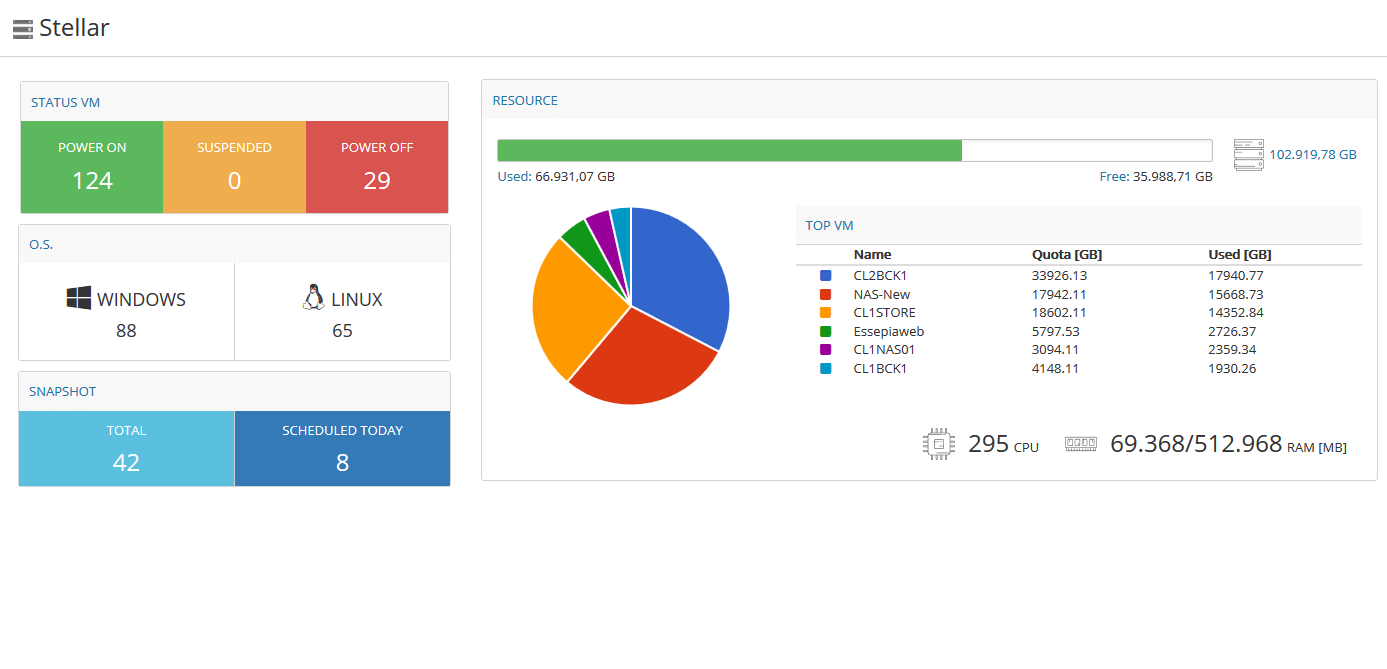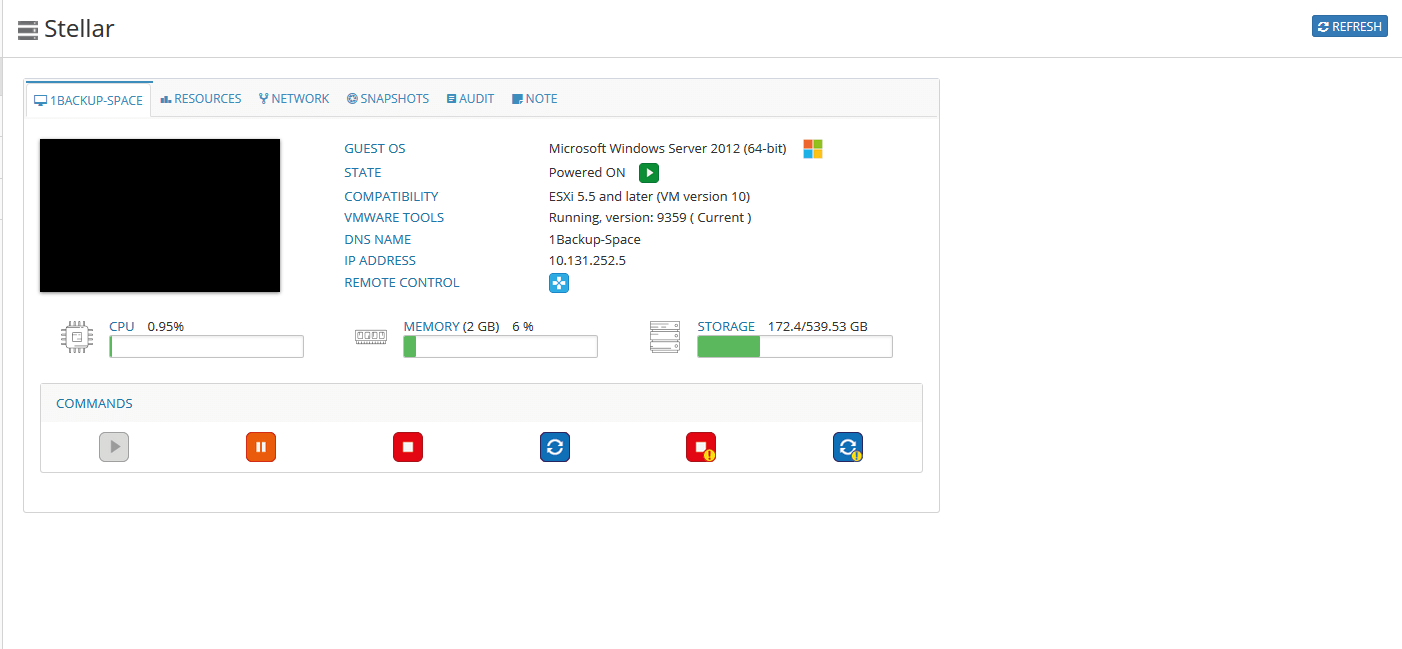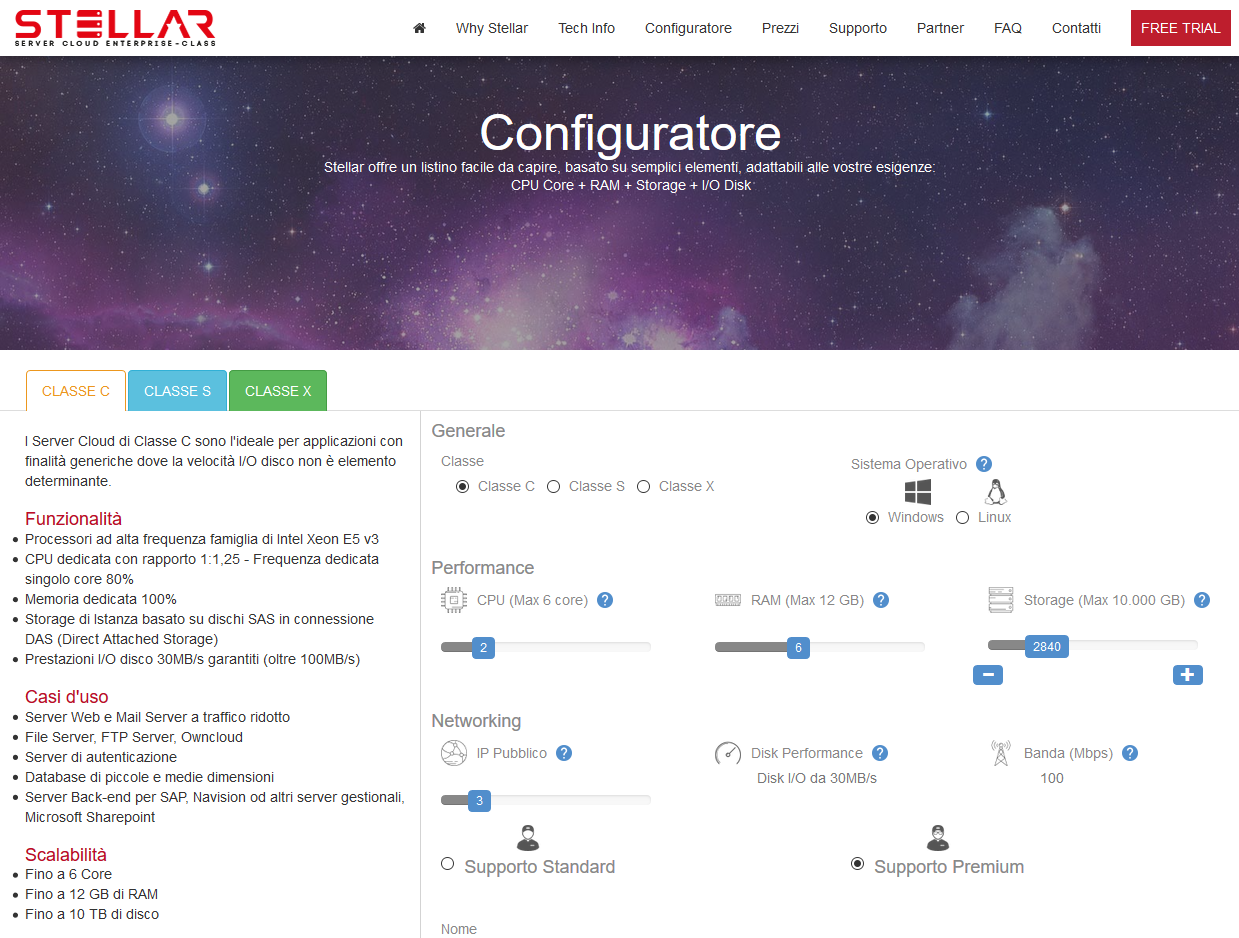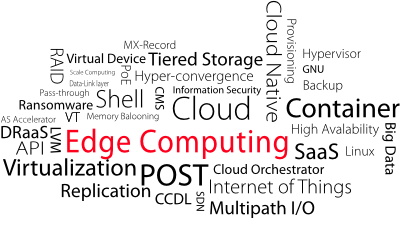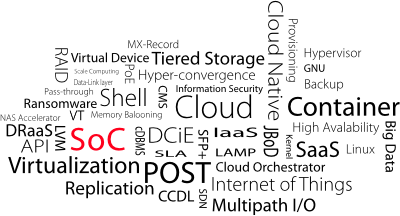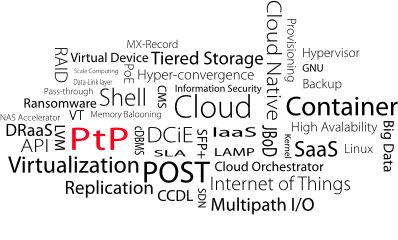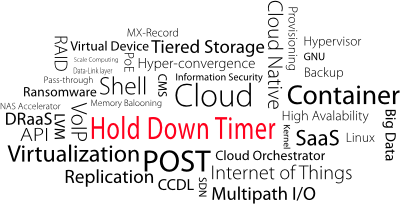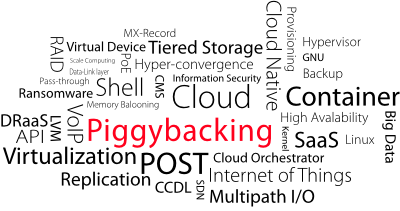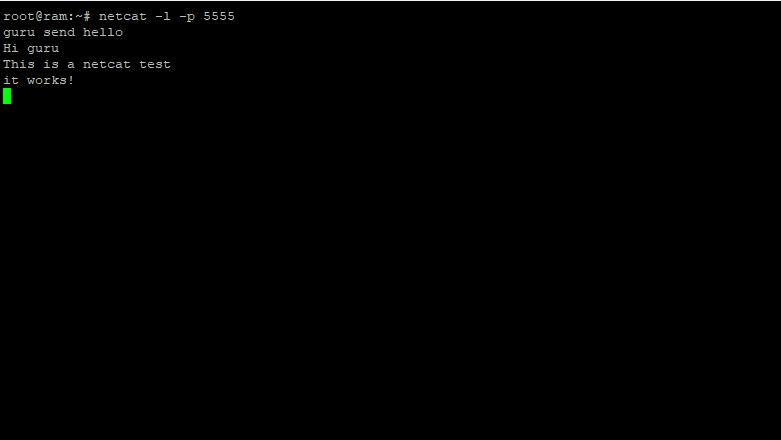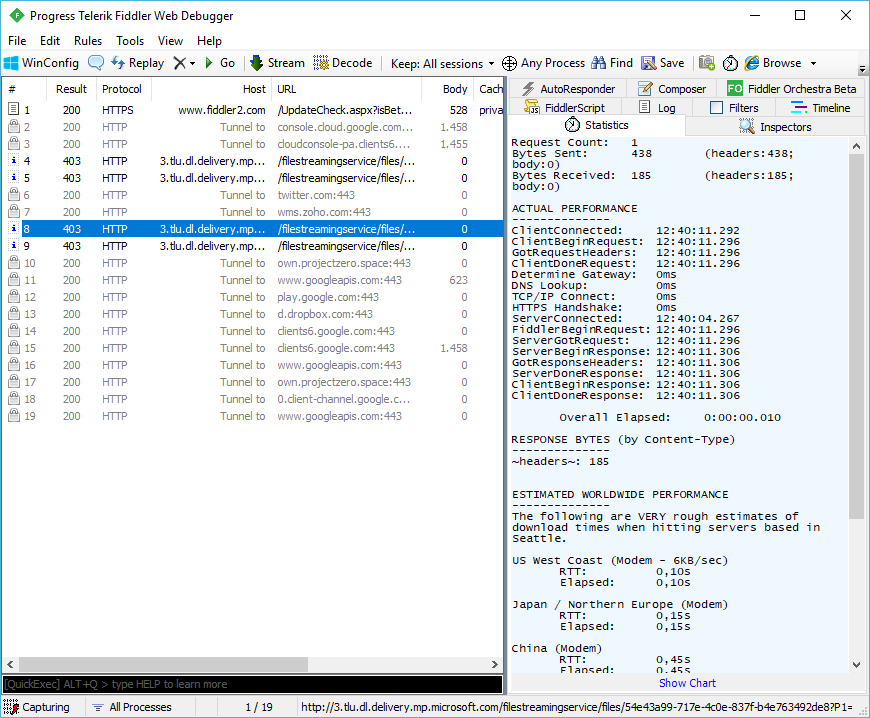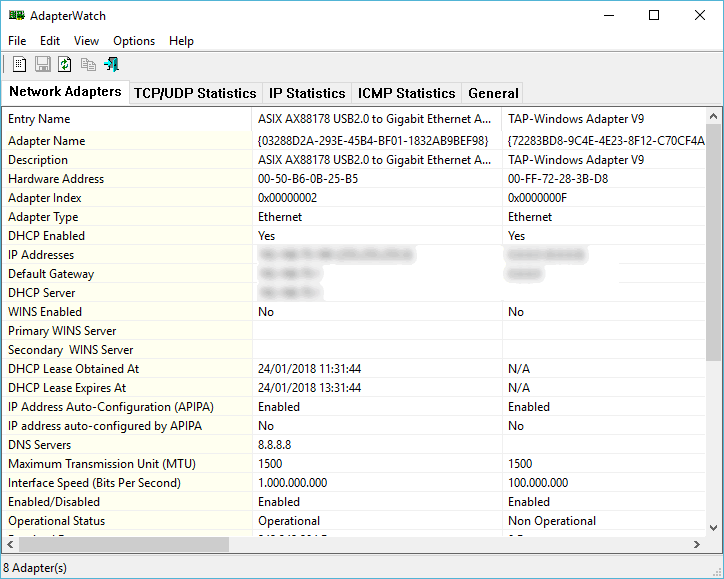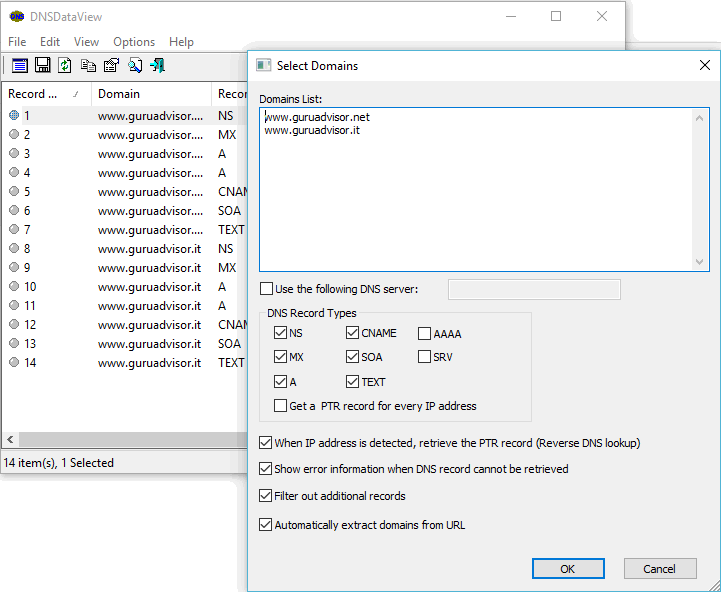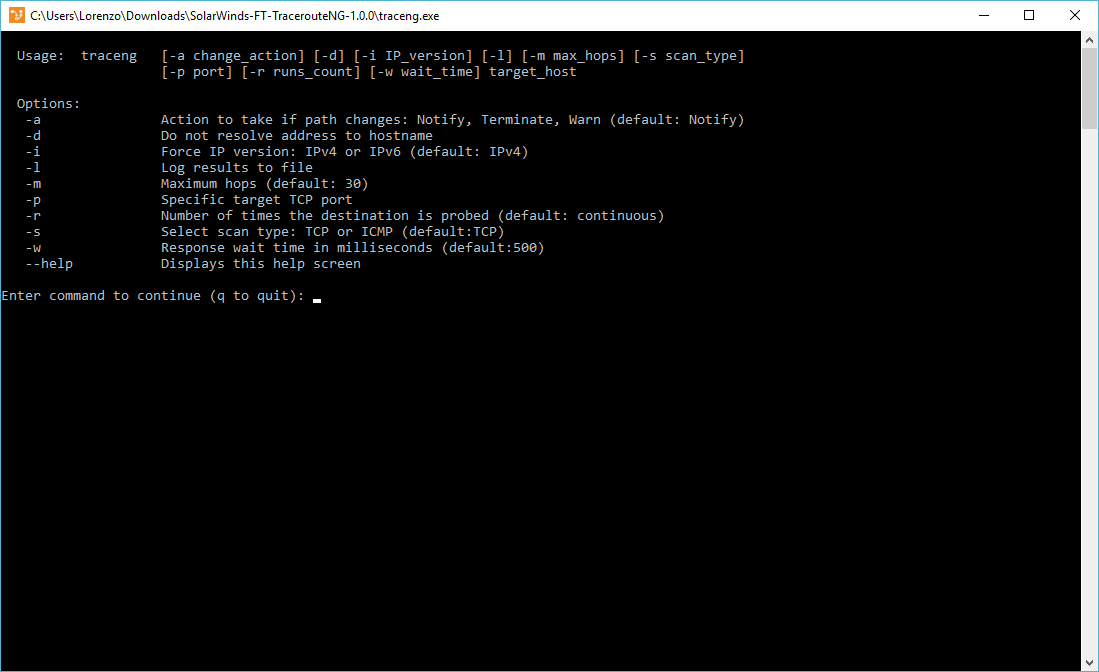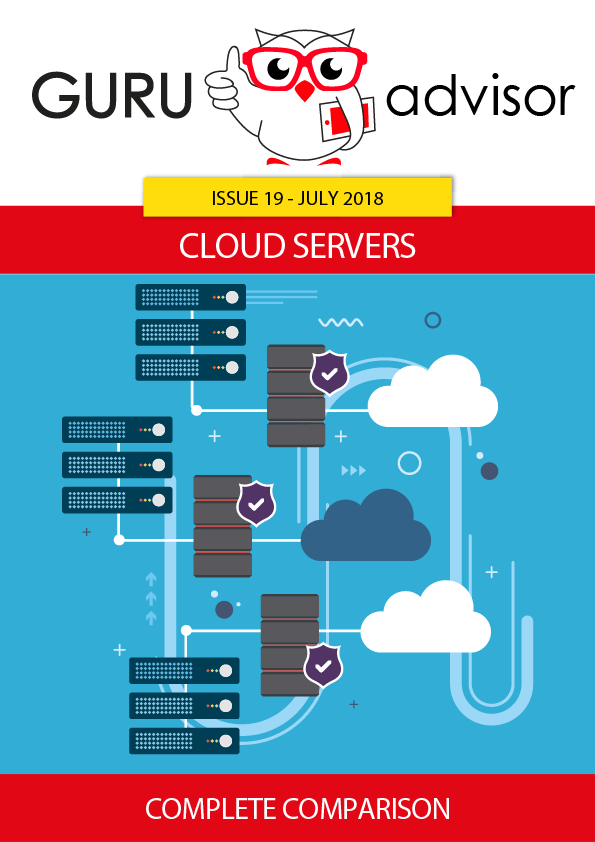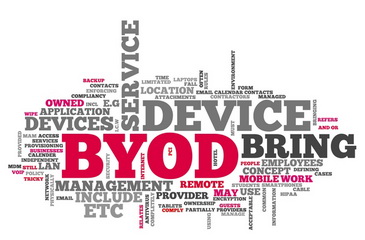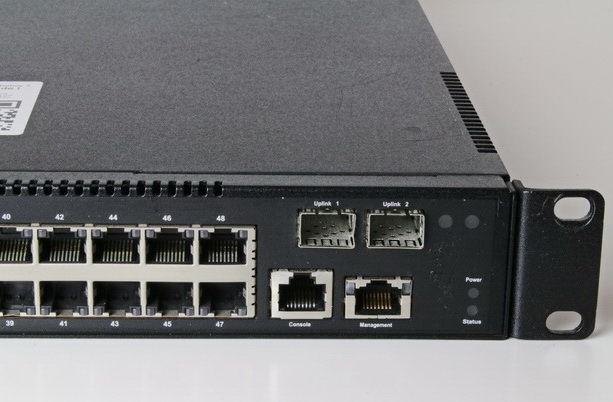Most companies with IT infrastructures now relies on cloud, public or hybrid cloud systems: Stellar offers Cloud Servers aimed to MSP, EDP Manager, sysadmin, Web Agencies, Software Houses and IT Pros seeking for a reliable and performant cloud system.
Stellar’s cloud servers are best suited to production environments that require, in addition to high performances, a guaranteed service continuity like email and authentication servers, file sharing, remote desktop, database, application software (ERP, CRM, MRP, etc..) and in general all services which rely on virtualization.
A dedicated infrastructure
Stellar relies on two giants of the sector: VMware vSphere and HPE. Servers are grouped into micro-clusters, called Small Cloud Clusters, which are composed by three hosts each. Servers are HP DL360 with double Intel Xeon E5 v3 processor, 192GB of RAM , double 1-GBit 8-port network card and redundant power supply.
This structure allows the implementation of VMware’s High Availability, which in turn offers business continuity to applications inside the cluster. When the max number of Cloud Servers in a Small Cloud Cluster is reached, new Cloud Servers are placed on a new cluster.
Storage is based on DAS (Directly Attached Storage) technology with a double 6GB SAS connection with double controller to provide Fault Tolerance and avoid the presence of a Single Point of Failure (SPoF). Inside each storage unit, disks are configured in RAID-6 volumes.
Each Cloud Server is protected by a firewall and backup system (both on a VM and OS level) on external iSCSI storage for each host. A virtual server can have one (or several) static public IP address and a guaranteed bandwidth of 100Mbps, while each client has a dedicated and isolated VLAN.
The structure of Small Cloud Clusters arises from the necessity of providing performances known in advance. These are guaranteed by a 1:1 CPU correspondence (in terms of cores and 100% of the available bandwidth) between hypervisor and Cloud Server, in contrast with the market as it proposes situation where the same single core is shared between virtual instances, resulting in degraded performances when the number of requests per second is high.
Likewise, RAM too has a 1:1 ratio and is not subject to overselling practices; disk performances are measured in I/O operations per second and not throughput per second, as the former are what make the difference in most cases. The latter parameter is often misused with SSDs to impress clients with big numbers, though don’t imply performances continuity. As needed performances grow, scalability is guaranteed by adding in any moment CPU, RAM and disk resources without having to upgrade to an higher “commercial” offer, unlike most other cloud providers.
Sygma Management Dashboard
Stellar Cloud Servers are managed through Sygma and a total integration allows the usual management of the VM: power on/off, reboot, check logs, remote browser access (for the initial setup or for critical situations like when you awkwardly lock out yourself after modifying a firewall rule..), network management, backups, snapshots, and so forth.
Be careful about the difference between snapshots and backups. They are not synonyms and definitely not interchangeable: a snapshot is a picture of the machine in a precise instant in time and is used when, for instance, the installation of a program results in a crash or in several conflicts, so the rollback to a previous state is needed.
A backup, on the other hand, is performed both on a VM level (.vmdk files) and inside the operating systems thanks to a dedicated agent. Sygma features a dedicated section where to plan jobs and monitor the ongoing state.
It often happens that backup are done properly and in a formally correct method, yet when you restore one, you realize that it doesn’t work. In order to overcome this critical situation, Stellar offers a capability of testing the restore on a backing VM and check that the process finishes smoothly as expected and without a downservice.
Resellers can also create users to assign to clients with certain write or read permissions on Cloud Servers: according to the assigned permissions, a client will be able to perform certain actions.
Structure of the offering
Stellar’s Cloud Servers offering is subdivided in three tiers, which differentiate in price and computational resources.
Class C starts from 50€/month and is designated for situations that don’t require particular resources. More advanced are Class S and Class X (respectively, 108€/month and 125€/month), providing more resources in terms of I/O and CPU, so to obtain performances comparable to physical servers’ ones.
The monthly fee, instead of a “pay-as-you-go” one, is the direct consequence of the nature itself of the Stellar service: guaranteed uptime and performances constant through time.
In addition to the services manageable from Sygma, the monthly fee includes standard support, which is initial migration and setup, email and phone support (working hours, reply within 4 hours), analysis and diagnostics of server, basic management and troubleshooting.
A Premium support is also available, and includes support for the migration from Stellar towards other Clouds, patches and antivirus management, application and technical support, dedicated firewall management, improved assistance coverage and quicker reply time.
Stellar has a practical and intuitive configurator to build your desired offer with the right amount of computational resources, additional services and operating system (free if Linux, licenced if Windows Server) and inquire a quote.
A trial period can be arranged with pre-sale consultancy in order to gain confidence with the product and make assessments based on your needs.



